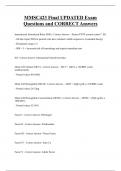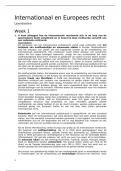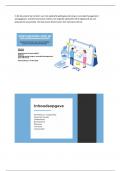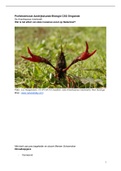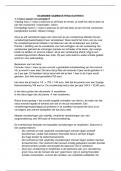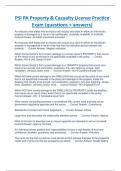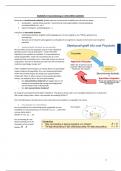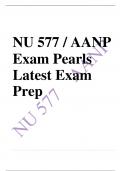Tentamen (uitwerkingen)
AMLS 3rd Edition Post Test UPDATED Exam Questions and CORRECT Answers
- Vak
- Instelling
AMLS 3rd Edition Post Test UPDATED Exam Questions and CORRECT Answers Which of the following may cause primary respiratory alkalosis? A. Fever B. Chest Wall Pain C. Vomiting D. Renal Failure - Correct Answer- A. Fever
[Meer zien]
